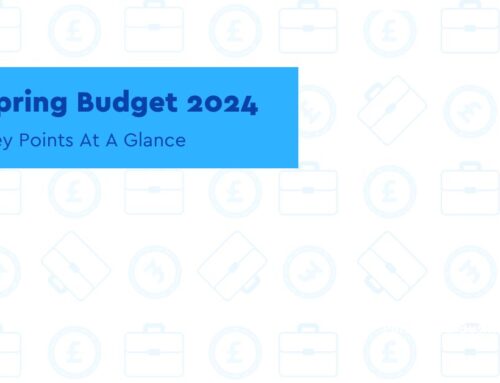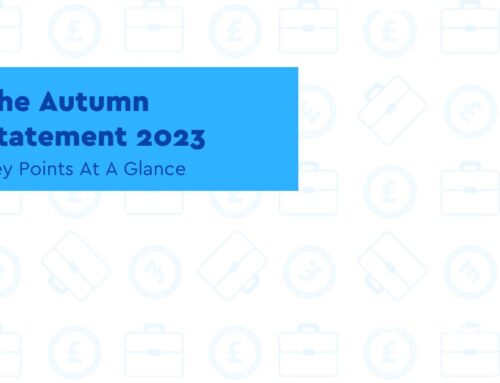Chancellor rejects pleas for furlough extension
Key Points
- The easing of Covid restrictions has been delayed by 4 weeks
- At the start of July, employers will have to start contributing 10% of an employee’s wage payable under furlough
Chancellor Rishi Sunak has rejected calls for an extension to the furlough scheme and business rates relief, despite Prime Minister Boris Johnson having delayed the easing of Covid-19 restrictions.
The temporary social security scheme is set to begin phasing out from July 1 and end completely on September 30.
But with national unlocking now scheduled for July 19, business leaders are saying that a failure to maintain economic support measures in line with public health restrictions would push struggling businesses into bankruptcy, risking thousands of jobs.
Business rate relief is set to fall from 100% to 66% from July 1, although it will remain in place until March next year.
Commercial landlords can also demand rent in full from July 1 – when a moratorium on demands for commercial rent arrears expires – unless the government brokers a deal spreading the financial burden. Officials are understood to be trying to reach an agreement by the end of the week that would mean landlords accepting they will never recover some rent accrued during the pandemic.
Ed Miliband, shadow business secretary, said many businesses are concerned about the removal of support while they are still unable to trade or profit, adding “the price of any delay to the roadmap must not be paid by businesses”.
Sources close to the Chancellor allegedly said that he believed sufficient measures were already in place to cope with a delay, while his decision for furlough to last until September was in case of unlocking delays.
At the start of July, employers will have to start contributing 10% of an employee’s wage payable under furlough, rising to 20% in August and September. Employees will continue receiving the same amount.
More support for those moving goods temporarily out of GB and NI
Key Points
- A new webpage outlines what options are available to businesses
- Existing guidance on reliefs on customs duty and VAT for goods reimported to GB also updated
HMRC has published information on how to minimise duty payments when moving goods temporarily into and out of Great Britain and Northern Ireland.
A new webpage outlines what options are available to businesses that are moving goods temporarily from GB to NI; from NI to GB and from GB to the EU.
Extended time limits for goods located in the EU on 31 December 2021
HMRC has also updated existing guidance on reliefs on customs duty and VAT for goods reimported to GB to provide information about goods exported from NI and to add time limits for goods in the EU on December 31, 2020.
Goods transported from the UK which were in the EU on December 31, 2020, will be eligible for relief even if the normal 3-year time limit for re-importation has expired. To claim this relief you must re-import these items back to Great Britain by June 30, 2022 and meet the other conditions for Returned Goods Relief.
You’ll not have to give the actual date the goods were exported from the UK, you’ll only need to show that the goods were in the UK at some point before December 31, 2020. This does not prevent the normal 3-year rule applying.
This extended time limit does not apply to goods re-imported into Northern Ireland.
Meanwhile, guidance on applying for temporary admission of goods to the UK or move goods from GB into NI has been updated with information about using temporary admission in NI.
HMRC: PAYE RTI penalties to remain risk-based
Key Points
- HMRC confirm the continued approach in the latest Employer Bulletin
- Employers who persistently file after the statutory filing date but within 3 days, will continue to be monitored
After a review, HMRC has decided to continue the risk-based approach to PAYE late filing and late payment penalties throughout the 2021-22 tax year.
In an article in the latest Employer Bulletin for June 2021, HMRC confirms that late filing and late payment penalties will continue to be considered on a risk-assessed basis rather than issued automatically. The first penalties for this tax year (beginning April 6, 2021) will be issued in August 2021.
Late filing penalties
As in previous years, HMRC will also continue to not charge penalties automatically if a Full Payment Submission (FPS) is filed late but within 3 days of the payment date and there remains no pattern of persistent late filing. This is not an extension to the current statutory position on reporting PAYE payments which remains unchanged.
Employers are still required to file their submissions on time unless any of the circumstances set out in the sending a FPS after payday guidance arises.
Employers who persistently file after the statutory filing date but within 3 days, will continue to be monitored and may be contacted or considered for a late filing penalty as part of the risk-based approach.
Late payment penalties
The due date to make PAYE payment to HMRC electronically remains the 22 of the month (or quarter if you are eligible to pay quarterly) following the tax month/period to which they relate. If you pay by cheque or other non-electronic payment methods, you must continue to make payment by the 19 of the following month or quarter to which the payment relates.
Reporting payroll information
Late or inaccurate reporting can negatively impact on your employees as Universal Credit payments are linked to the payroll information you report. It is therefore very important to report your payroll accurately and on time, as changes in earnings can affect the amount of Universal Credit your employees receive.
The payment date you report on your FPS should be on or before the date you pay your employees, not the payroll run date or another date from your payroll system, unless the normal payment date falls on a non-banking day (Saturday, Sunday or bank holiday).
When a regular payday falls on a non-banking day and because of this payment is made on the:
- last working day before the regular payday
- next working day after the regular payday
For PAYE purposes the payment may be treated as having been made on the regular payday. This is also the date that should be reported on the FPS as the ‘payment date’ even if the actual payment is made slightly earlier or later.
For National Insurance contributions purposes the payment must be treated as if it had been made at its regular time, if the actual and regular payment days are in the same tax year. The payment may also be treated as having been made at its regular time when the payment dates cross a tax year.
UK inflation rate jumps to 2.1 per cent in May
Key Points
- The largest annual upward contribution to inflation has come from transport costs
- The BoE said it expects inflation to hit 2.5% by the end of this year as the economy reopens
UK inflation jumped in May due to rising clothing and fuel prices, pushing it ahead of the Bank of England’s target, the Office for National Statistics (ONS) said this morning.
The Consumer Prices Index (CPI) rose to 2.1 per cent in May, up from 1.5 per cent in April, beating economists’ forecast of a rise to 1.8 per cent.
The largest annual upward contribution to inflation has come from transport costs, according to the ONS.
Core inflation, which excludes the price of food and energy, rose to two per cent in the 12 months to May.
“It’s not just the heatwave getting investors hot under the collar,” said Tom Stevenson, investment director for Personal Investing at Fidelity International.
“This only adds to the global conversation on rising inflation and the concerns that come with it.”
Surge in clothing and fuel prices
On a monthly basis, surging prices for clothing, fuel, recreational goods and meals pushed the rate higher.
These were partially offset by a hefty fall in the prices of food and non-alcoholic drinks, particularly for bread and cereals.
“UK inflation is below the level in the US, as the UK has been slower to lift Covid restrictions and sterling strength has helped keep imported goods prices low,” said Emma Mogford, fund manager of Premier Miton.
“With further opening up of the economy and potential for bottlenecks in both goods and labour post Brexit, the UK number could follow the US inflation number higher.”
How will the BoE react?
The Bank of England said it expects inflation to hit 2.5 per cent by the end of this year as the economy reopens from Covid lockdowns.
Governor Andrew Bailey says the increase will be temporary and does not require the central bank to scale back its huge stimulus programmes, which it is expected to leave unchanged on 24 June after its latest meeting.
However, chief economist Andy Haldane said last week that the BoE’s policymakers faced the “most dangerous moment” since 1992 when the government removed sterling from the European Exchange Rate Mechanism.
“There is a greater level of uncertainty about prices at present, with a possibility that inflation will turn out to be higher if staff shortages persist, triggering stronger wage rises, while cost increases continue to be passed on to consumers,” said Yael Selfin, chief economist at KPMG UK.
”However, with price pressures expected to ease next year and inflation to stabilise around two per cent, it is likely that the Bank of England will hold fire and not raise interest rates before 2023.”
Weekly HMRC, Gov’t and tax updates
The economy grew by 2.3% in April 2021
The Office for National Statistics estimates that GDP grew by 2.3% in April this year as Government restrictions continued to cease, causing the fastest monthly growth since July 2020.
Data shows that GDP in April was still 3.7% below the national output seen in February 2020, but stood 1.2% above the initial recovery peak in October 2020.
Services grew by 3.4% in April, while accommodation service activities grew significantly by 68.6% as caravan parks and holiday lets opened up.
Food and beverage service activities grew by 39%, meanwhile, as pubs, restaurants and cafes were able to service customers in outdoor seating areas.
Output in the production sector fell by 1.3% while construction saw its first dropoff since December 2020, falling by 2%.
‘Triple lock’ pension pledge could cost Treasury £4bn
Chancellor Rishi Sunak will have to stump up £4bn on pensioners from next year to cover the Conservative Party’s ‘triple lock’ pledge, despite efforts to cut back spending after the pandemic.
The headline growth rate of average UK earnings rose to 5.6 per cent in April — an artificial inflation caused by last year’s furlough scheme and job losses.
Economists expect it to rise to around eight per cent by July, but say the true rate of growth is much lower.
This means Sunak will have to hike pensions by the headline rate if he is going to stick to the Tories’ triple-lock promise, which ensures state pensions rise highest out of average earnings growth, inflation or 2.5 per cent.
Renting a home now cheaper than buying one
The cost of renting grew at a record rate last month amid huge spikes in house prices, but regardless, renting is now cheaper than buying a house.
The average cost of a rented home in Britain jumped to £1,054 per month in May, up 7.1% on the same month last year according to Hamptons, the fastest rise seen by the estate agency since they started analysing the market in 2013.
The spike was largest for bigger properties, a trend that had played out since the market reopened after the first lockdown last year, with the average rent on a four-bed property rising by 9.5% to £1,805. Rents on one-bedroom homes, on the other hand, rose by 0.4%.
Get In Touch
At Morgan Reach, we understand every business needs a little help now and again-especially when it comes to the financial side of things. Therefore, to help our clients and visitors we endeavour to cover as much of the business news as possible. If you are self-employed or run a business and need assistance and advice on how these news could make a difference to you or your business, feel free to get in touch with the experts at Morgan Reach. Our business growth experts at Morgan Reach will guide you through what support is available for you or your business as well as the latest news that may affect you







